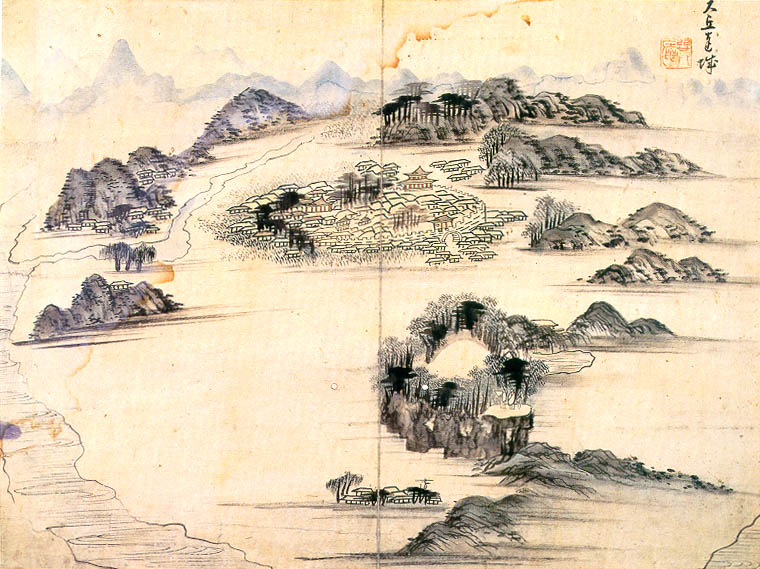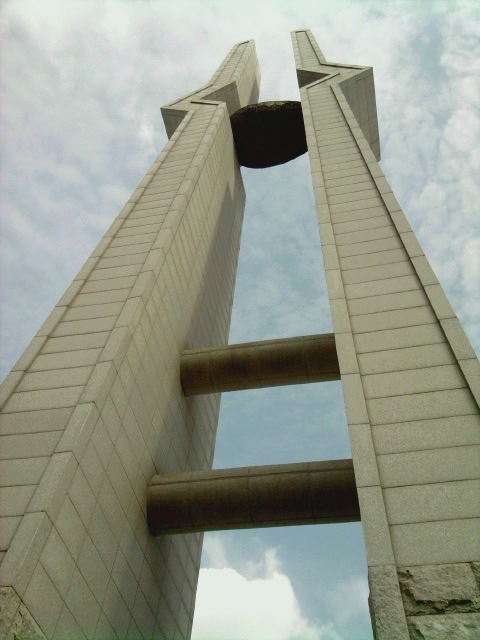|
1982 President's Cup Football Tournament ...
The 1982 President's Cup Football Tournament ( ko, 제12회 대통령배 국제축구대회) was the 12th competition of Korea Cup. The competition was held from 5 to 18 June 1982. South Korea and Operário played out a 0–0 draw and shared the trophy. Group stage Group A ---- ---- ---- ---- ---- ---- ---- ---- ---- Group B ---- ---- ---- ---- ---- ---- ---- ---- ---- Knockout stage Bracket Semi-finals ---- Third place play-off Final See also *Korea Cup *South Korea national football team results References External linksPresident's Cup 1982 (South Korea)at RSSSF {{Korea Cup 1982 Events January * January 1 – In Malaysia and Singapore, clocks are adjusted to the same time zone, UTC+8 (GMT+8.00). * January 13 – Air Florida Flight 90 crashes shortly after takeoff into the 14th Street Bridge in Washington, D.C ... [...More Info...] [...Related Items...] OR: [Wikipedia] [Google] [Baidu] |
Operário Futebol Clube (MS)
Operário Futebol Clube, commonly referred to as Operário de Campo Grande, Operário-MS or simply Operário is a Brazilian professional club based in Campo Grande, Mato Grosso do Sul founded on 21 August 1938. It competes in the Campeonato Sul-Mato-Grossense, the top flight of the Mato Grosso do Sul state football league. Operário is currently ranked third among Mato Grosso do Sul teams in CBF's national club ranking, at 179th place overall. History The club was founded on August 28, 1938, by civil construction workers of Campo Grande. The name Operário means Factory Worker in Portuguese. In 1982 the club won the President's Cup, played in South Korea. Since November 29, 1999, Operário is an enterprise. Because of this, the team name changed from Operário Futebol Clube to Operário Futebol Clube S/A. S/A means joint-stock company. Currently Operário is in a very serious financial crisis and most of its debts are labor debts and tax debts. Stadium Home stadium is t ... [...More Info...] [...Related Items...] OR: [Wikipedia] [Google] [Baidu] |
Daegu
Daegu (, , literally 'large hill', 대구광역시), formerly spelled Taegu and officially known as the Daegu Metropolitan City, is a city in South Korea. It is the third-largest urban agglomeration in South Korea after Seoul and Busan; it is the third-largest official metropolitan area in the nation with over 2.5 million residents; and the second-largest city after Busan in the Yeongnam region in southeastern Korean Peninsula. It was overtaken by Incheon in the 2000s, but still it is said to be the third city, according to the "Act on the Establishment of Daegu City and Incheon City" (Act No. 3424 and April 13, 1981). Daegu and surrounding North Gyeongsang Province are often referred to as Daegu-Gyeongbuk, with a total population over 5 million. Daegu is located in south-eastern Korea about from the seacoast, near the Geumho River and its mainstream, Nakdong River in Gyeongsang-do. The Daegu basin is the central plain of the Yeongnam List of regions of Korea, regio ... [...More Info...] [...Related Items...] OR: [Wikipedia] [Google] [Baidu] |
Oh Seok-jae
Oh, OH, or Oh! is an interjection, often proclaiming surprise. It may refer to: Arts and entertainment Music Albums * ''Oh!'' (Girls' Generation album), 2010 * ''Oh!'' (ScoLoHoFo album), 2003 * ''OH (ohio)'', by Lambchop, 2008 * ''Oh!'', an EP that came with the preorders of ''Oh! Gravity.'' by Switchfoot, 2006 Songs * "O (Oh!)", 1920 by Ted Lewis, 1953 by Pee Wee Hunt * "Oh" (Ciara song), 2005 * "Oh!" (Girls' Generation song), 2010 * "Oh!" (Pink Lady song), 1981 * "Oh" (Stray Kids song), 2021 * "Oh!", by Boys Noize from '' Oi Oi Oi'' * "Oh!", by The Breeders from '' Pod'' * "Oh", by Dave Matthews from ''Some Devil'' * "Oh", by Fugazi from ''The Argument'' * "Oh", by Juliana Hatfield from ''Made in China'' * "Oh!", by Micky Green from '' White T-Shirt'' * "Oh!", by Sleater-Kinney from ''One Beat'' * "Oh", by Spratleys Japs from ''Pony'' * "Oh!", by The Trudy * "Oh," by Underworld, recorded for the soundtrack to A Life Less Ordinary, 1997 Other media * Oh! (TV channel), a ... [...More Info...] [...Related Items...] OR: [Wikipedia] [Google] [Baidu] |
Johari Maina
Johari may refer to: * ''Johari'' (film), a 2006 Tanzanian film * Johari dialect, a dialect of the Kumaoni language of India *Johari window, in interpersonal communication and relationships People with the name *Azizi Johari (born 1948), American model and actress *Ismail Johari, Malaysian writer * Johari Johnson, American actress and comedian *Johari Abdul, Malaysian politician *Johari Abdul Ghani, Malaysian politician * Johari Abdul-Malik, American imam *Johari Amini, American editor *Johari Ramli (born 1949), Malaysian cyclist *Khairul Helmi Johari (born 1988), Malaysian footballer *Khir Johari (1923–2006), Malaysian politician *Nurfais Johari (born 1999), Malaysian footballer *Nurul Farhanah Johari, Malaysian weightlifter *Tarmizi Johari, Bruneian footballer *Zairil Khir Johari (born 1982), Malaysian politician *Mohammed Ali bin Johari (1976–2008), Singaporean convicted murderer who raped and killed his stepdaughter. See also * Johari-Goldstein relaxation, in physics * ... [...More Info...] [...Related Items...] OR: [Wikipedia] [Google] [Baidu] |
Bayer 04 Leverkusen II
Bayer 04 Leverkusen II was the reserve team of German football club Bayer 04 Leverkusen. Until 2005, the team played as Bayer 04 Leverkusen Amateure. The team has qualified for the DFB-Pokal, the German Cup, on eight occasions, but never advanced beyond the first round. Before being withdrawn from competition at the end of the 2013–14 season the team played in the tier four Regionalliga West. History Bayer 04 Leverkusen Amateure first entered the highest football league in the Middle Rhine region, the Verbandsliga Mittelrhein, in 1978 and won the league in its fourth season there, in 1981. The team spent the next seventeen seasons in the tier-three Oberliga Nordrhein, gradually improving its results. In 1994 the Regionalliga was established as the new third tier of German football and the team won promotion to this level after an Oberliga championship in 1998. [...More Info...] [...Related Items...] OR: [Wikipedia] [Google] [Baidu] |
Incheon
Incheon (; ; or Inch'ŏn; literally "kind river"), formerly Jemulpo or Chemulp'o (제물포) until the period after 1910, officially the Incheon Metropolitan City (인천광역시, 仁川廣域市), is a city located in northwestern South Korea, bordering Seoul and Gyeonggi to the east. Inhabited since the Neolithic, Incheon was home to just 4,700 people when it became an international port in 1883. Today, about 3 million people live in the city, making it South Korea's third-most-populous city after Seoul and Busan. The city's growth has been assured in modern times with the development of its port due to its natural advantages as a coastal city and its proximity to the South Korean capital. It is part of the Seoul Capital Area, along with Seoul itself and Gyeonggi Province, forming the world's fourth-largest metropolitan area by population. Incheon has since led the economic development of South Korea by opening its port to the outside world, ushering in the modernization o ... [...More Info...] [...Related Items...] OR: [Wikipedia] [Google] [Baidu] |
Incheon Sungui Stadium
Incheon Sungui Stadium was a multi-purpose stadium in Incheon, South Korea. It was formerly used mostly for football matches, and was the home of National League side Incheon Korail. The stadium had a capacity of 25,000. It was built in 1920 and was demolished on June 13, 2008 to make space for the Incheon Football Stadium Incheon Football Stadium, also known as Sungui Arena Park, is a football-specific stadium in Incheon, South Korea. The stadium is currently used mostly for football matches and is the home ground of Incheon United of the K League. The stadium was d .... Defunct football venues in South Korea Sports venues completed in 1920 Multi-purpose stadiums in South Korea Sports venues in Incheon Jeju United FC 1920 establishments in Korea 2008 disestablishments in South Korea Sports venues demolished in 2008 {{SouthKorea-sports-venue-stub ... [...More Info...] [...Related Items...] OR: [Wikipedia] [Google] [Baidu] |
Gwangju
Gwangju () is South Korea's sixth-largest metropolis. It is a designated metropolitan city under the direct control of the central government's Home Minister. The city was also the capital of South Jeolla Province until the provincial office moved to the southern village of Namak in Muan County in 2005 because Gwangju was promoted to a metropolitan city and was independent of South Jeolla province. Its name is composed of the words ''Gwang'' () meaning "light" and ''Ju'' () meaning "province". Gwangju was historically recorded as ''Muju'' (), in which "Silla merged all of the land to establish the provinces of Gwangju, Ungju, Jeonju, Muju and various counties, plus the southern boundary of Goguryeo and the ancient territories of Silla" in the ''Samguk Sagi.'' In the heart of the agricultural Jeolla region, the city is also famous for its rich and diverse cuisine. History The city was established in 57 BC. It was one of the administrative centers of Baekje during the Three ... [...More Info...] [...Related Items...] OR: [Wikipedia] [Google] [Baidu] |
Gwangju Mudeung Stadium
Gwangju Mudeung Stadium is a sports complex in Gwangju, South Korea. Main stadium is currently used mostly for football matches and has a capacity of 30,000 people and was opened in 1966. During the 1988 Summer Olympics, it hosted some football matches. This complex has Gwangju Mudeung Baseball Stadium Gwangju Mudeung Baseball Stadium is a baseball stadium in Gwangju, South Korea. It is used mostly for baseball games and was the home stadium of Kia Tigers, formerly the Haitai Tigers, between 1982 and 2013. See also *Gwangju Mudeung Stadium ... and gymnasium. References1988 Summer Olympics official report.Volume 1. Part 1. pp. 204–5.Official SiteWorld Stadiums Venues of the 1988 Summer Olympics Olympic football venues Sports venues in South Korea Football venues in South Korea Multi-purpose stadiums in South Korea Sport in Gwangju Buildings and structures in Gwangju Venues of the 1986 Asian Games {{Summer-Olympic-venue-stub ... [...More Info...] [...Related Items...] OR: [Wikipedia] [Google] [Baidu] |
Jan Poortvliet
Jan Poortvliet (; born 21 September 1955) is a Dutch professional football coach and a former player who played as a left-back. He works as the coach of the Under-18 squad of FC Eindhoven He represented the Netherlands national team at the 1978 FIFA World Cup in Argentina. His biggest club successes came when he played for PSV Eindhoven in the mid- and late 1970s. After his retirement in the early 1990s, he became a football manager and worked for clubs such as FC Den Bosch, RBC Roosendaal, Stormvogels Telstar, and Southampton. Managerial career Southampton On 29 May 2008, he was announced as the new head coach of English Football League Championship side Southampton as an immediate replacement to Nigel Pearson, with Mark Wotte taking over the Academy. In taking the Southampton job he became the club's 10th head coach in as many years as well as being the first foreigner to hold the position. But within days it emerged that Poortvliet was still employed by his previous clu ... [...More Info...] [...Related Items...] OR: [Wikipedia] [Google] [Baidu] |
Monoranjan Bhattacharya
Monoranjan Bhattacharya, nicknamed ''Mona'', is a retired Indian professional footballer and football manager. During his playing career, he represented the "Big Two" of Kolkata football, East Bengal and Mohun Bagan. He also represented India in various international tournaments between 1978 and 1989. He was one of the finest Indian stopper-back during his time in Indian football. Foreigners who played against him have said he was physically strong, was good in aerial tussles and a very clean tackler. East Bengal supporters worship him. Legendary football coach Amal Dutta was influential nurturing talents including Bhattacharya. Club career Bhattacharya appeared with Calcutta Football League club George Telegraph, before joining East Bengal Club in 1977. With the "red and gold brigade", he created a club record for continuously representing the club in a period spanning fourteen years. He was one of the most successful defenders of his time and was known for his strong and sk ... [...More Info...] [...Related Items...] OR: [Wikipedia] [Google] [Baidu] |

%2C_1890.jpg)
